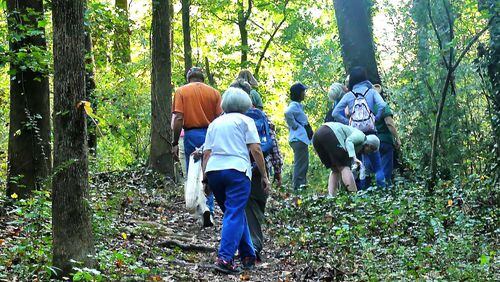If I had my way, late October would stick around much longer. To me, there’s no better time to be outdoors in Georgia than this time of year.
The days are cooler, less buggy and with the prettiest, bluest skies of the year. Summer’s ripeness is all around, mute testimony to the miracle of the changing seasons. And one of the greatest shows in the natural world, the autumn leaf color spectacle, is peaking now in North Georgia’s mountains. This weekend and next should be prime color time there.
Getting outside not only is fun, it’s good for our bodies. Numerous studies show that strolling in the outdoors can reduce risk of heart disease, strokes, type II diabetes, obesity, back pain, osteoporosis and other ills.
Spending time outdoors also is good — perhaps vital — for our mental well-being. Paracelsus, the 16th-century German-Swiss physician, wrote: “The art of healing comes from nature, not from the physician.” Modern studies find much evidence of that: Communing with nature in wild places and even in city parks helps reduce stress, anxiety, depression and improves heart and metabolic rates in people.
Even small amounts of exposure to woods, birdsong and gurgling streams can improve our creativity and enhance our mood, says author Florence Williams in her new book “The Nature Fix: Why Nature Makes Us Happier, Healthier and More Creative.”
“The more nature, the better you feel,” she writes.
A 2015 Stanford University study found that people who walked for 90 minutes in a natural area, as opposed to participants who walked in a high-traffic urban setting, showed decreased activity in a region of the brain associated with a key factor in depression. “These results suggest that accessible natural areas may be vital for mental health in our rapidly urbanizing world,” said co-author Gretchen Daily, a professor of environmental sciences.
It works for me.
IN THE SKY: From David Dundee, Tellus Science Museum astronomer: The moon will be full next Saturday — the Trading Moon, as the Cherokee peoples called November’s full moon. Venus and Mars are low in the east just before dawn. Saturn is low in the southwest at dusk and a few hours later. Mercury and Jupiter are too close to the sun for easy observation right now.
About the Author






